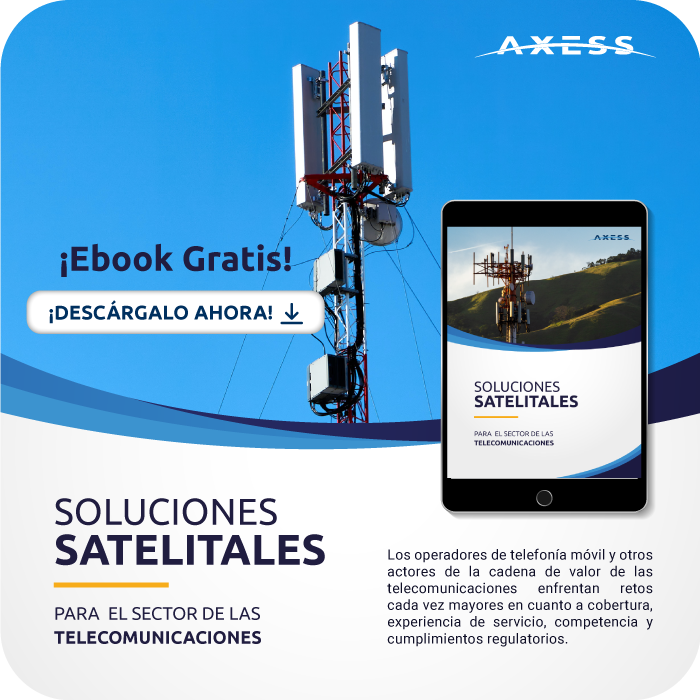
49th anniversary of Arpanet, the Internet predecessor
3 December, 2018
Critical operations with satellite technology
11 December, 2018From communication with family members or real-time monitoring of processes, up to enhance the Internet of Everything.
During the seventy’s decade of the twentieth century, faced with oil embargoes from the Middle East, oil companies from countries such as the United States, Norway and Brazil began to invest in technologies which purpose was to exploit hydrocarbon deposits on the seabed, they decided to reach inaccessible depths until then. In the following decades, this investment would materialize in innovation and development oriented to underwater technologies: robots, monitoring systems, semi-submersible platforms, etc. And, as technologies evolved, connectivity gained particular importance in oil platforms.
However, the terrestrial infrastructure is unable of an oil platform, the satellite connections are the only feasible ones, because they are on the high seas, in places so remote and lacking other types of connectivity technology. AXESS is an expert in providing highly reliable connectivity in such circumstances; it knows about the needs of the oil industry and therefore takes into account characteristics such as its huge and dispersed operational geographies, dangerous work environments, complex operations and high operating costs, with the purpose of offering connectivity solutions tailored to each of its customers.
The platforms can be fixed or floating: the capacity of the former is up to 400 people and they are used in shallow waters, they are usually dedicated to production and drilling; the latter ones house up to 200 people and are used from 400 meters deep. When emerged, more than four decades ago, oil platforms had been designed to cover immediate needs, it was not planned what would happen to them once they were no longer profitable; In order to avoid harmful consequences for the environment, the international community agreed that as of 1997 all new platforms would be removable.
Today, deep-sea exploration still requires high investments, so few countries have the necessary technologies; the single exploration involves sums of between 200 and 250 million dollars (mdd), to which are added between 6 thousand million dollars and 15 million dollars for infrastructure, drilling, underwater installations and maintenance of wells. The risks that both personnel and production face are many and very dangerous: corrosion, bent pipes, power supply to underwater facilities… the slightest carelessness can cause serious accidents. Hence the importance of real-time 24/7 monitoring facilitated by connectivity.
Regarding the personnel, on board the oil platforms it is possible to find various profiles: extraction and construction employees, geologists and engineers, as well as managers, executives and administrative staff. A large part of the oil companies install their platforms in nations such as Venezuela, Brazil, the Middle East, the North Sea or the coast of Scandinavia; then your workers must spend long periods away from their places of origin. The work days are usually 12 hours a day and work for periods ranging from one to three continuous weeks, followed by equal periods on land.
Therefore, the importance of connectivity on oil platforms also has human connotations, entertainment and communication of workers with their families. Along with the technological advances experienced or adopted by these platforms, the working conditions of the people on board have improved remarkably. Depending on the type of facilities and the company that owns them, it is possible to find modern television, internet and satellite telephony systems, movie theater, gym, sauna, board games or video games, even squash courts. In addition to the reasons outlined above, AXESS knows that connectivity is especially important in oil platforms because it is essential to bring to these highly specialized industrial ecosystems the benefits of the Internet of Everything (Internet of Everything, IoE); 21st century technologies favor the optimal operation of production systems, chemical and gas treatment, seismic exploration and drilling or remote control in the handling of well drilling equipment. The IoE promises to aid in various aspects: early leak detection, video surveillance with analytics or wireless sensors to collect useful data in the decision making.






